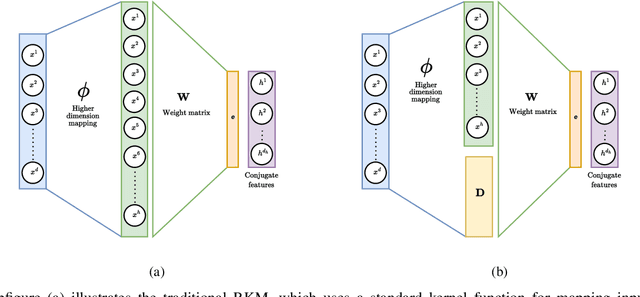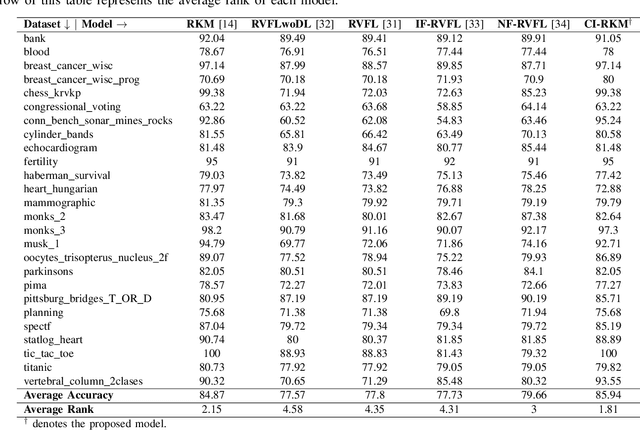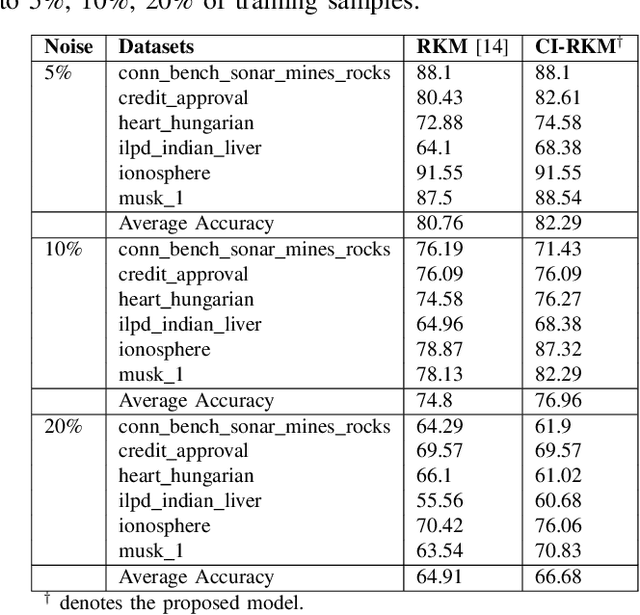Ritik Mishra
CI-RKM: A Class-Informed Approach to Robust Restricted Kernel Machines
Apr 12, 2025



Abstract:Restricted kernel machines (RKMs) represent a versatile and powerful framework within the kernel machine family, leveraging conjugate feature duality to address a wide range of machine learning tasks, including classification, regression, and feature learning. However, their performance can degrade significantly in the presence of noise and outliers, which compromises robustness and predictive accuracy. In this paper, we propose a novel enhancement to the RKM framework by integrating a class-informed weighted function. This weighting mechanism dynamically adjusts the contribution of individual training points based on their proximity to class centers and class-specific characteristics, thereby mitigating the adverse effects of noisy and outlier data. By incorporating weighted conjugate feature duality and leveraging the Schur complement theorem, we introduce the class-informed restricted kernel machine (CI-RKM), a robust extension of the RKM designed to improve generalization and resilience to data imperfections. Experimental evaluations on benchmark datasets demonstrate that the proposed CI-RKM consistently outperforms existing baselines, achieving superior classification accuracy and enhanced robustness against noise and outliers. Our proposed method establishes a significant advancement in the development of kernel-based learning models, addressing a core challenge in the field.
Projection based fuzzy least squares twin support vector machine for class imbalance problems
Sep 27, 2023Abstract:Class imbalance is a major problem in many real world classification tasks. Due to the imbalance in the number of samples, the support vector machine (SVM) classifier gets biased toward the majority class. Furthermore, these samples are often observed with a certain degree of noise. Therefore, to remove these problems we propose a novel fuzzy based approach to deal with class imbalanced as well noisy datasets. We propose two approaches to address these problems. The first approach is based on the intuitionistic fuzzy membership, termed as robust energy-based intuitionistic fuzzy least squares twin support vector machine (IF-RELSTSVM). Furthermore, we introduce the concept of hyperplane-based fuzzy membership in our second approach, where the final classifier is termed as robust energy-based fuzzy least square twin support vector machine (F-RELSTSVM). By using this technique, the membership values are based on a projection based approach, where the data points are projected on the hyperplanes. The performance of the proposed algorithms is evaluated on several benchmark and synthetic datasets. The experimental results show that the proposed IF-RELSTSVM and F-RELSTSVM models outperform the baseline algorithms. Statistical tests are performed to check the significance of the proposed algorithms. The results show the applicability of the proposed algorithms on noisy as well as imbalanced datasets.
 Add to Chrome
Add to Chrome Add to Firefox
Add to Firefox Add to Edge
Add to Edge